The best CMS platforms for AI integration depend on how deeply you want to embed AI features such as content generation, chatbots, SEO tools, automation, or user personalization. Some platforms offer plug-and-play AI features, while others allow for more advanced, custom integrations tailored to your exact needs. Your choice should reflect not just your current goals but how flexible and scalable you want your site to be in the future.
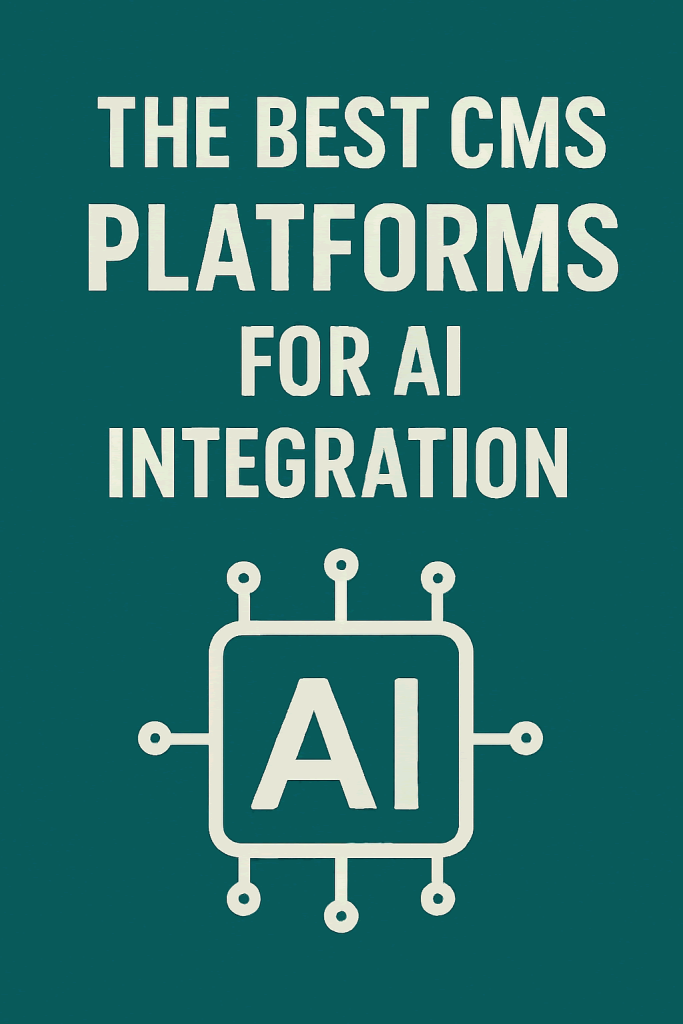
✅ Our Recommendation: We suggest sticking with WordPress, and if you want an advanced edge later, consider adding a headless backend like Strapi + vector search for chatbot knowledge bases.
🥇 1. WordPress
Best Overall for AI Features
- ✅ Massive plugin ecosystem
- ✅ Supports GPT-based content generation, chatbots, SEO automation
- ✅ Easily integrates with OpenAI, Mistral, Zapier, etc.
Top AI Plugins:
- AI Engine (chatbots, assistants, writers)
- Bertha.ai (copywriting)
- GPT AI Power (blogs, images, chatbot)
- RankMath/Yoast AI (SEO with AI tools)
Ideal for: Blogs, marketing, portfolios, small business sites
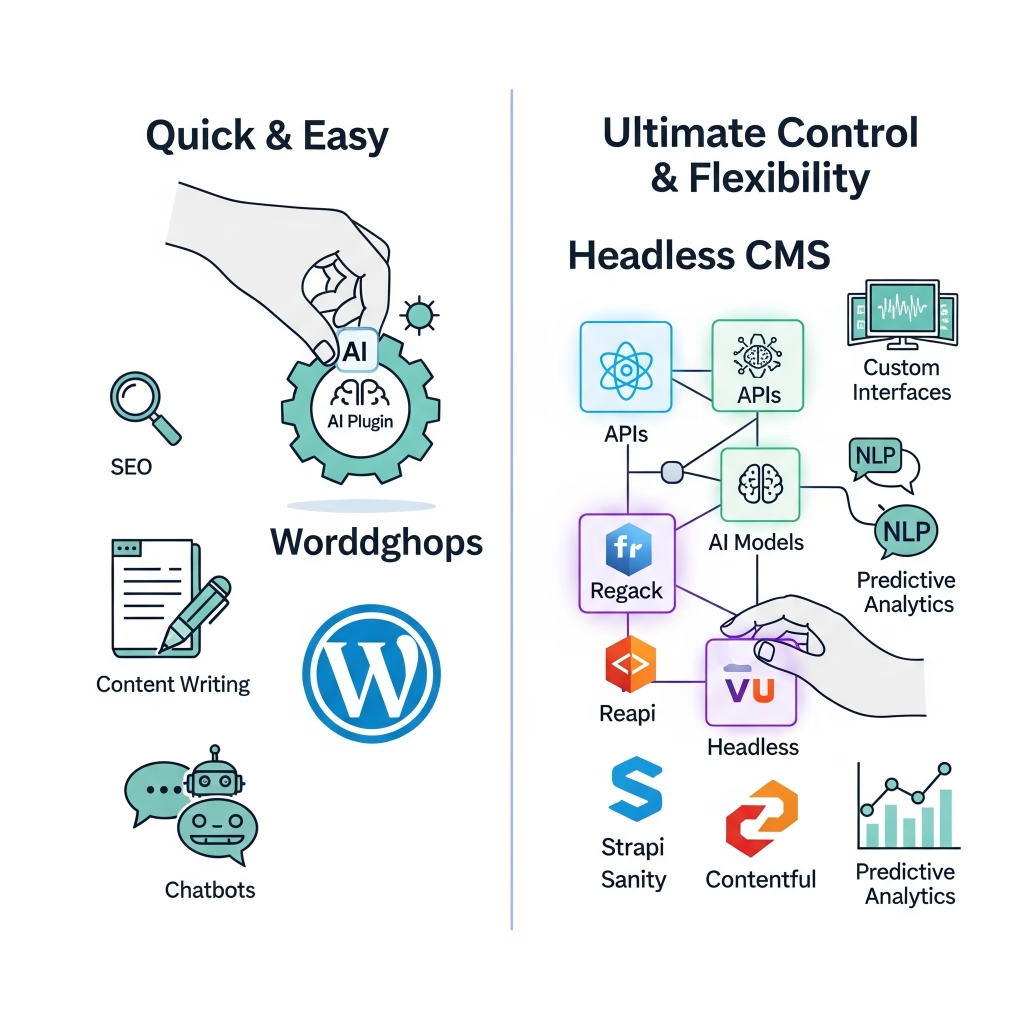
🥈 2. Webflow (with Integrations)
Best for design-driven, low-code AI websites
- No built-in AI but integrates well via:
- Zapier + OpenAI
- Custom JavaScript bots
- Can be connected to Make.com for automation
Ideal for: Designers, visual-first agencies
🥉 3. Ghost CMS
Best for AI-driven publishing
- Built-in Markdown + API-friendly
- Lightweight and fast
- Connect OpenAI or Mistral via Node.js scripts or Zapier
Ideal for: Writers, publications, subscription-based blogs
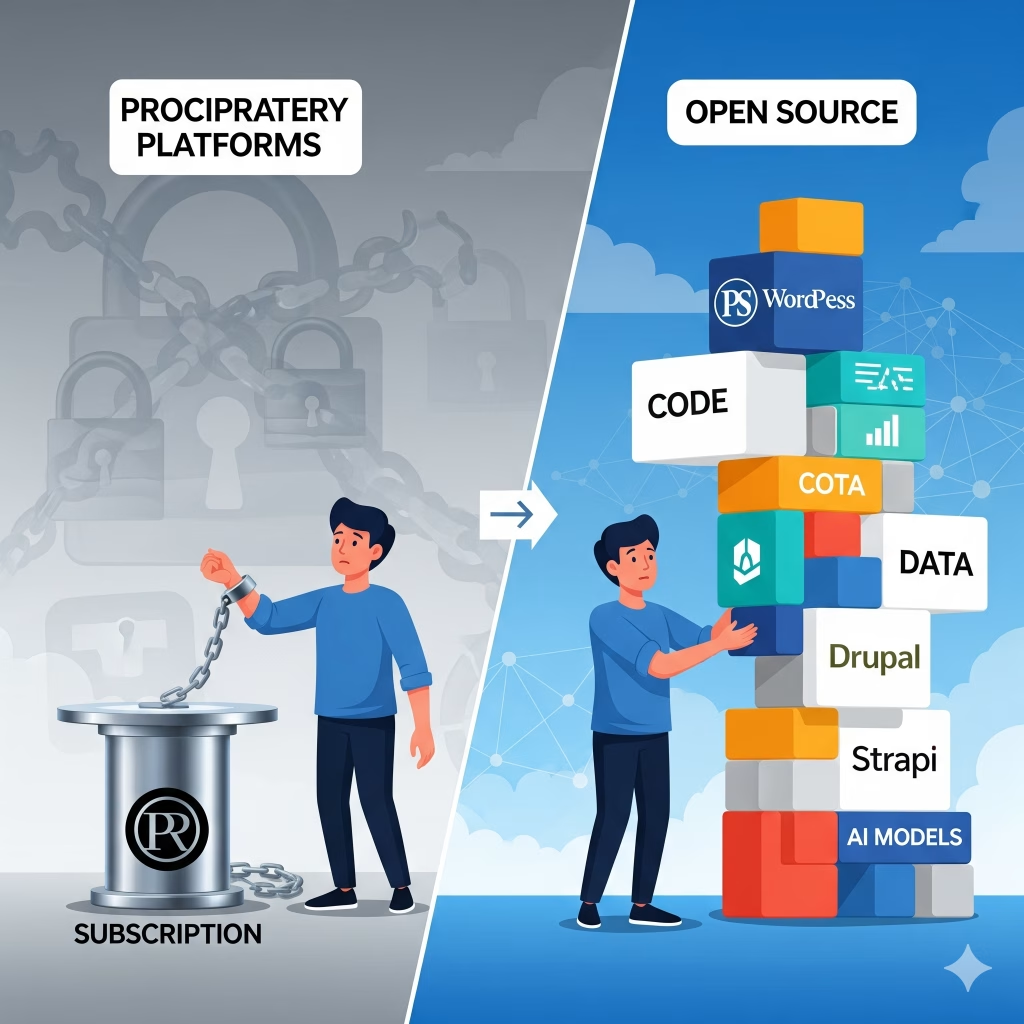
🏗 4. Headless CMS (Strapi, Sanity, Contentful)
Best for developers building AI-rich web apps
- Fully customizable, backend-only CMS
- You control all AI integrations via APIs
- Supports AI-powered content pipelines and vector DB search
Ideal for: Complex apps, multilingual or dynamic content at scale
🔒 5. Joomla / Drupal
- Joomla has some GPT plugins but lacks modern support
- Drupal can integrate AI but is developer-heavy
Use only if: You’re already committed
MORE LINKS:
AI bots installation
AI automation
ChatGPT integration
Content generation
AI user support
AI in small business
AI newsletters
Content moderation
SEO optimization
BEST CMS FOR USE IN AI INTEGRATION
WordPress, for example, is one of the most popular choices for AI-enhanced websites because of its massive plugin ecosystem. From AI-powered SEO plugins like Rank Math to content generation tools and ChatGPT-style chatbots, WordPress allows you to experiment with AI features without needing to code. It’s perfect for those who want to test and deploy AI functionality quickly while maintaining full control over design and content.
If you’re building something more complex, headless CMS platforms like Strapi, Sanity, or Contentful offer more control and flexibility. These platforms work well with modern frameworks and allow you to build fully customized front ends while using APIs to integrate AI tools for natural language processing, predictive analytics, and dynamic user experiences. They’re ideal for developers and enterprises looking for scalability and advanced performance.
Ultimately, the right CMS for AI integration depends on your technical requirements, budget, and user expectations. At Wemaxa.com, we help clients select and configure CMS platforms that support their AI goals whether it’s creating smart content workflows, improving customer interaction, or automating day-to-day tasks. The goal is to choose a CMS that grows with your business and makes AI work for you, not the other way around.
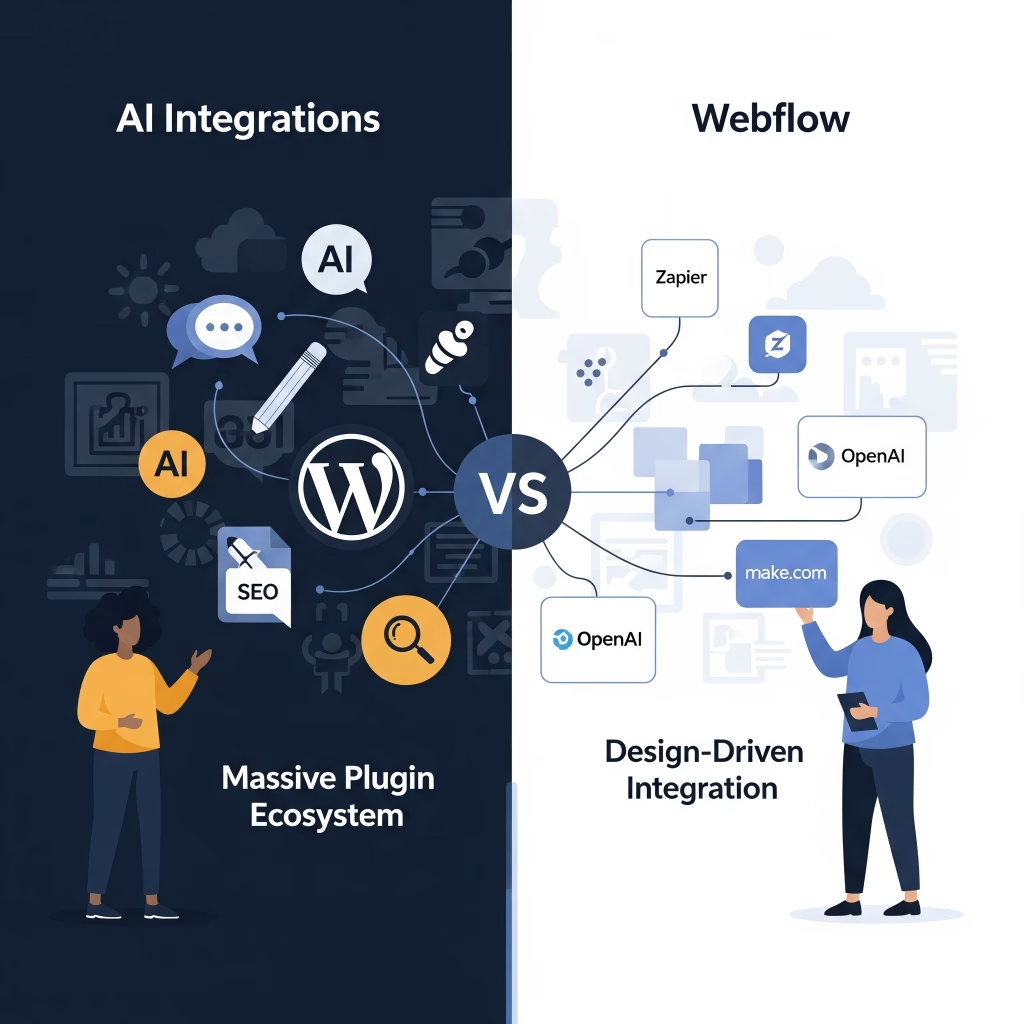
What CMS Supports AI Features Best?
As businesses increasingly seek smart, adaptive, and scalable content management systems, the question of which CMS supports AI features most effectively becomes more critical. In 2026, the answer is not about choosing between closed versus open platforms but about finding architectures that are extensible, modular, and compatible with modern AI workflows. WordPress remains the most widely adopted platform globally and supports a vibrant ecosystem of plugins, headless APIs, and custom integrations that enable AI-powered content generation, personalization, chatbot implementations, and automated moderation. Plugins such as AI Engine, Bertha.ai, and Rank Math integrate directly into the WordPress dashboard, allowing users to craft SEO-optimized headlines, auto-generate summaries, and suggest internal links as they write. At the same time, headless WordPress setups using REST API or GraphQL can deliver AI-enhanced content to any front-end stack, enabling developers to layer machine learning features without being constrained by traditional PHP rendering. Alternative platforms such as Drupal, Joomla, and newer headless CMS tools like Strapi or Sanity.io also support AI integrations, but the maturity, community support, and breadth of plugins make WordPress the most versatile option for businesses looking to embed intelligent features quickly and cost-effectively.
Beyond WordPress, other CMS platforms offer compelling AI-native capabilities. For instance, Wix has built AI-driven tools like Wix ADI (Artificial Design Intelligence) that can generate site structures based on user preferences, content prompts, and branding guidelines all designed for visually-driven designers who may not code. Webflow has introduced AI enhancements in its editor that help generate copy variations, optimize layout spacing, and assist with image selection using AI-based guidance. On the enterprise side, platforms like Contentful and Optimizely integrate with AI services via APIs and provide infrastructure for A/B testing, personalization, and dynamic content delivery. However, these platforms often require more technical investment, whereas WordPress allows business users to deploy AI features via GUI plugins or lightweight custom code. If your priority is rapid deployment, cost-efficiency, and community-based extensibility, WordPress remains the industry standard for embedding AI within content workflows.
The real strength of a CMS in supporting AI is measured not just by built-in tools but by how easily it connects to external AI services. Open architecture systems that allow webhook triggers, content pipelines, and automated workflows stand out in this regard. For example, headless CMS architectures built using Strapi or Sanity allow editors to write in a clean interface and automatically trigger OpenAI or Hugging Face API calls to generate summaries, translate copy, or moderate comments. Similarly, WordPress users can schedule content generation workflows via Zapier, Make, or custom server-side cron jobs, creating newsletters, blog posts, and metadata in an automated pipeline. This flexibility means that instead of choosing a “CMS with AI features,” organizations can choose a CMS that is fundamentally AI-compatible enabling integration with tools like ChatGPT, Mistral, Google Vertex AI, or custom LLAMA-based models as their use cases evolve.
When evaluating which CMS supports AI best, it’s also important to consider ownership, portability, and control. Proprietary platforms that bundle AI features may lock you into a specific vendor ecosystem that charges per usage and limits data portability. Open-source platforms like WordPress, Drupal, or Strapi allow organizations to own their content and data, migrate freely, and tailor AI functionality without subscription constraints. For businesses focused on long-term autonomy, compliance, or custom branding, this freedom ensures that AI features remain aligned with evolving legal and strategic needs. You can host your own inference pipelines, use open models, and connect layers of automation without waiting for vendor roadmaps giving you an infrastructure that is future-proof, flexible, and resilient in a fast-moving AI landscape.
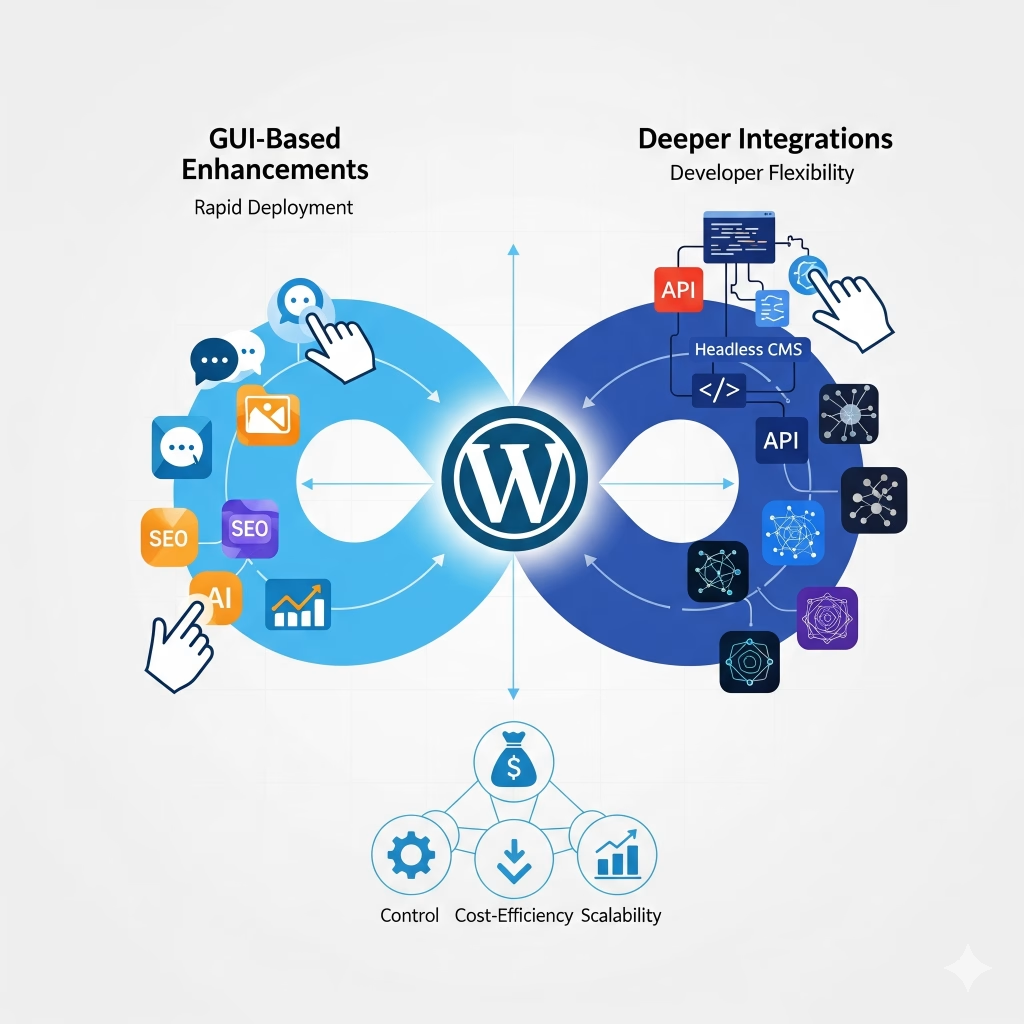
In summary, while many CMS platforms today can support AI features to some extent, the most effective and versatile option in 2026 remains WordPress especially when combined with headless setups and modular plugins. For teams prioritizing ease of use and rapid deployment, WordPress plugins offer GUI-based AI enhancements. For developers seeking deeper integrations, headless CMS architectures provide the flexibility to embed any AI model you choose. If long-term control, cost-efficiency, and scalability are priorities, WordPress and open-source headless solutions deliver the best return on investment. Ultimately, the right CMS for AI is defined not by marketing claims but by how well it aligns with your operational needs, technical capacity, and strategic vision and today, WordPress leads in that alignment across nearly all use cases.
To explore more, review resources like the official WordPress developer documentation at WordPress REST API, documentation from Strapi, and AI pattern guidance from Google web.dev. By choosing a CMS that supports AI both today and tomorrow, you future-proof your digital presence while staying competitive in an environment where automation, personalization, and intelligence are deciding factors in user engagement.


